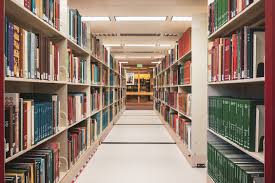The Correct Spelling is School, not school
When it comes to spelling, there are often words that trip us up. One such word is “school.” It may seem straightforward, but some people mistakenly spell it as “school.” In this article, we will explore the correct spelling of the word and shed light on common misspellings.
Understanding the Basics
Before we get into the nitty-gritty of why and how spelling errors occur, let’s start with the basics.
Definition of “School”
A school is an institution designed to provide learning spaces and learning environments for the teaching of students (or “pupils”) under the direction of teachers. Most countries have systems of formal education, which is commonly compulsory.
The Correct Spelling: School
In the lexicon of human civilization, few words hold as much significance and universal relevance as “School.” Including only four letters, this modest term exemplifies a whole environment of learning, development, and social turn of events. Whether we are understudies leaving on the excursion of information, educators directing and supporting youthful personalities, or guardians entrusting the instruction of their offspring to these foundations, “School” resonates profoundly inside our shared mindset.
At its center, “School” addresses something beyond an actual structure or where lessons are educated; it exemplifies the actual pith of progress and edification. It is inside these blessed corridors that the seeds of interest are planted, where brains are touched off with the flares of request and revelation. From the earliest long periods of essential training to the specific domains of higher learning, the establishment of “School” fills in as the pot in which scholarly and profound development is fashioned.
Past its role as a simple course for scholarly guidance, “School” fills in as a nexus for social cooperation and social trade. It is here that fellowships are shaped, coalitions are fashioned, and various points of view unite. In the vibrant tapestry of the school community, individuals from varying backgrounds and walks of life come together, enriching each other’s experiences and broadening their horizons.

Etymology of the Word “School”
The word “school” comes from the Greek word “scholē,” which originally meant “leisure,” reflecting the leisurely time people spent discussing philosophical ideas. Over time, it evolved to mean a place of learning.
Common Misspellings
Examples of Misspelled Words
Misspellings like “sckool,” “scool,” and “shcool” are not uncommon. These errors can happen for a variety of reasons, from typographical mistakes to simple misunderstandings of the word’s correct spelling.
Reasons Behind the Misspellings
Why do these mistakes happen? Sometimes it’s due to phonetic spelling—people write words as they sound. Other times, it’s a result of hurried typing or lack of familiarity with the correct spelling.
Why Correct Spelling Matters
Communication Clarity
Correct spelling ensures that your message is clear. A misspelled word can confuse the reader or lead to misunderstandings, particularly in written communication where visual cues are absent.
Professionalism and Credibility
Spelling errors can undermine your professionalism and credibility. Whether you’re writing an email, a report, or a social media post, mistakes can make you appear careless or uneducated.

Spelling Errors in Digital Communication
Social Media and Texting Habits
In the age of social media and texting, spelling errors have become more common. Abbreviations and slang dominate online communication, but it’s important to know when to switch to proper spelling and grammar.
The Role of Autocorrect
Autocorrect can be both a blessing and a curse. While it can catch many errors, it can also introduce mistakes if we’re not careful. Relying too heavily on technology can lead to complacency.
Psychological Aspects of Spelling Errors
Cognitive Processes Involved in Spelling
Spelling is a complex cognitive process involving visual memory, phonological processing, and motor skills. Understanding these processes can help in developing better strategies for learning and teaching spelling.
Dyslexia and Other Learning Difficulties
For some, spelling errors are more than occasional mistakes. Conditions like dyslexia can make spelling particularly challenging. Recognizing and supporting those with learning difficulties is essential for inclusive education.
Educational Approaches to Improve Spelling
Traditional Methods
Traditional methods like rote memorization, spelling bees, and regular testing have long been used to improve spelling skills. These methods can be effective but often need to be supplemented with more engaging approaches.
Modern Techniques and Tools
Today, there are numerous tools and techniques available to help with spelling. Interactive apps, online games, and adaptive learning technologies can make spelling practice more enjoyable and effective.

The Role of Technology
Spell Checkers and Grammar Tools
Spell checkers and grammar tools are invaluable, but they aren’t foolproof. They can help catch errors but can’t replace a solid understanding of spelling rules and patterns.
Educational Apps and Games
Apps and games designed to improve spelling can be particularly useful for children and adults alike. These tools provide a fun way to practice and reinforce spelling skills.
The Influence of Culture and Language Evolution
How Language Changes Over Time
Language is constantly evolving, and spelling can change over time. However, standard spelling is essential for maintaining clear communication across different regions and generations.
Cultural Variations in Spelling
Different English-speaking countries have variations in spelling (e.g., “color” vs. “colour”). Understanding these differences is important for effective communication in a global context.
Real-Life Consequences of Poor Spelling
Academic Impact
In academic settings, poor spelling can affect grades and overall academic performance. It’s crucial for students to develop strong spelling skills early on.
Career Implications
In the professional world, spelling errors can affect job prospects and career advancement. Employers often view poor spelling as a sign of inattention to detail.
Tips for Avoiding Common Spelling Mistakes
Practice and Repetition
Regular practice and repetition are key to improving spelling. This can include writing exercises, spelling tests, and reading a variety of texts.
Mnemonics and Memory Aids
Mnemonics and other memory aids can help with difficult-to-spell words. For example, “i before e except after c” is a well-known mnemonic for spelling certain words correctly.
Learning from Mistakes
The Importance of Feedback
Receiving feedback on your writing is crucial for improving your spelling. Constructive criticism helps identify patterns in mistakes and areas for improvement.
Embracing Errors as Learning Opportunities
Mistakes are a natural part of the learning process. Instead of fearing them, embrace them as opportunities to learn and grow.

The Future of Spelling
Will Technology Make Spelling Obsolete?
As technology continues to evolve, some wonder if traditional spelling skills will become obsolete. However, while technology can aid in communication, a fundamental understanding of spelling remains important.
The Balance Between Technology and Traditional Learning
Finding a balance between using technology and traditional learning methods is essential. Both have their place in modern education and can complement each other effectively.
Conclusion
Correct spelling is more than just a technicality; it’s a vital part of clear communication and professionalism. While technology provides valuable tools to help with spelling, it’s important to develop strong foundational skills. By understanding the reasons behind common misspellings and utilizing various strategies to improve, we can ensure our writing is clear, credible, and effective.
FAQs
What are the most commonly misspelled words?
Commonly misspelled words include “accommodate,” “definitely,” “separate,” “occurrence,” and of course, “school.”
How can I improve my spelling?
Improving spelling requires regular practice, using memory aids like mnemonics, and utilizing tools like spell checkers and educational apps.
Why is spelling important in the digital age?
Even in the digital age, correct spelling is crucial for clear communication and maintaining professionalism, especially in written correspondence.
What tools can help with spelling?
Tools like spell checkers, grammar apps, educational games, and online courses can all help improve spelling skills.
Is spelling less important today than it used to be?
While technology has changed the way we communicate, correct spelling remains important for clarity and professionalism in both personal and professional settings.
